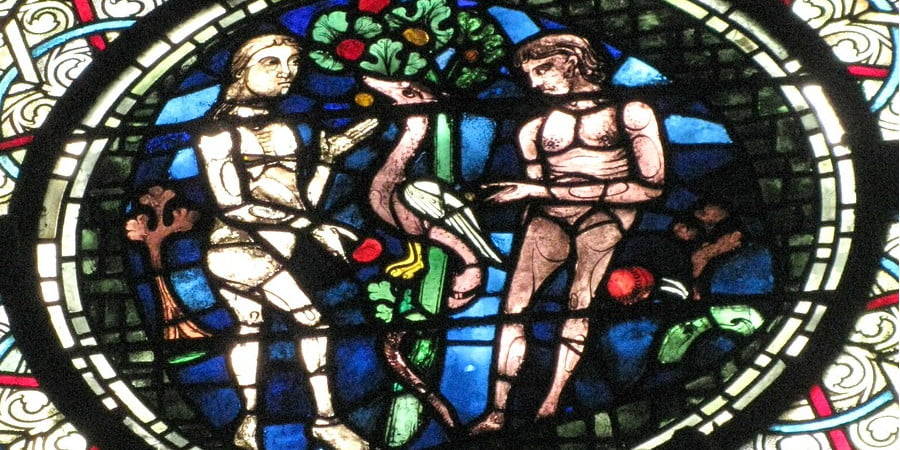In the past few years I have done a lot of reflecting around issues of sexuality. One area with which I have only begun to engage is intersex, which I take to refer to people whose biological sex doesn’t conform to either male or female, and transgender, which I take to refer to people whose sexual identity is different to their biological sex. Some reflections:
1. Although intersex and transgender are relatively frequent – eg 1 in 2500-4000 people are intersex depending on what biological variations are counted as intersex – I have sent most of my 50 years on this earth with very little awareness that these are the experiences of some people;
2. I have had to learn to distinguish in a fresh way between biological sex and gender. While this at first was somewhat uncomfortable, I have found it a very helpful and sensible distinction.
3. Our cultural tendency has been to define sexuality in binary terms – male or female – and historically we have been dismissive of and intolerant to intersex and transgendered people. Historically there has been a tendency to associate deviation from a male/female binary norm with deviancy of character, leading many intersex and transgender people living with a sense of shame and fear of being exposed. This is something for which we as a community need to be deeply repentant;
4. Intersex and transgender are not moral states but biological-psychological states. It is not right/wrong to be intersex or transgender. It simply is;
5. Bringing intersex and transgender out of the shadows is a good thing. I am at a loss to explain why some people are opposed to this. Surely it is a good thing for people to be able to openly acknowledge and own their sexuality without being shamed, ostracised, or considered deviant?
6. I get that there will be debate about whether we enlarge our understanding of “gender” and “sex” to embrace the notion of multiple sexes and multiple genders or retain a male/female binary and acknowledge variations from this. At the moment I favour the former, for a couple of reasons:
a. It will help all of us recognise that whatever we may believe about the origins of sex and gender the reality now is that these are diverse;
b. The (admittedly little) I have heard from transgender and intersex people is that they frequently experience a male/female binary as reinforcing a sense of isolation and rejection;
7. This subject can evoke feelings of deep discomfort – after all sex and gender are central dimensions of human identity and for the categories to suddenly be changed can be confronting to the mental maps we have created to navigate life – but this is precisely why those of us who are not intersex or transgender must not allow our feelings of discomfort to drive our response. If I am feeling uncomfortable by the sudden (to me) broadening of the categories of sex and gender, this is nothing compared to the difficulties for intersex and transgender people in a society that has barely acknowledged their existence.
8. One of the best things we can do is listen to the stories of intersex and transgender people. A recent edition of Australian story, for example, focussed on a transgender teenager named Georgie. I found it incredibly helpful to my understanding of transgender and the issues confronting transgender people, their families and their communities.
9. I think this issue should help us recast a biblical theology of sex and gender. In particular, our discussion always seems to go back to the Genesis creation narratives, which of course makes sense. But I am now wondering whether we need a much stronger focus on Jesus’s statement about eunuchs and the absence of marriage in the kingdom to come and the Pauline construction that “in Christ there is no male and female”. It seems that these texts suggest that the redemption of creation will not involve a restoration of sex and gender to a creation norm but some kind of redefining of sex and gender. Not sure just what that means or the implications for how we construct sex and gender in the present but I suspect it’s where I need to do some thinking.
10. I am on a steep learning curve and looking forward to learning from and with new intersex and transgender friends.







Some Reflections on Transgender and Intersex | https://t.co/6loqoINYbU https://t.co/8VnRlWofOk
Thanks for opening a conversation. I’ve found your previous posts regarding sexuality quite thought-provoking. I’d love to hear your further thoughts regarding point 9, particularly.
As always, Scott, you show amazing depth & wisdom about a subject a large percentage of people cannot begin to consider. Why does the census ask whether we are male or female? How does a transgender person answer this? For many years I have wondered if, when our Lord Jesus Christ returns, he/she
will be transgender because of the
complete lack of the feminine in the biblical godhead.
I recently read the book: Transparently for the same reasons you described – to get some understanding… Worth a read: http://www.transparently.ca
Scott, I fully sympathise with your position. Transgender and now intersex realities surely bring about a bit of a rethink among people who deal with people. Eventually that rethink will make its way into the social psyche. Unfortunately for those who find themselves between the ‘normal’ polarities their case to be heard is being blured with the sex-as-a-recreational-activity revolution. As a society we need to think through them both. We can’t think them through in the same thought. It all gets junked in together and the profound differences get lost in the mix. Christians make it all the worse with… Read more »